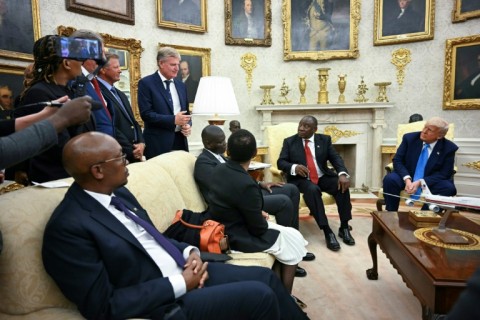"This is what Elon wanted": the Billionaire blueprint for capturing the state
These days I find myself returning to an old William Gibson quote: “The future is already here - it’s just not very evenly distributed.”
The cyberpunk novelist was warning about how technology could massively deepen inequality, as a few get access to incredible advancements that were kept from the many. It’s a dark, dystopian vision, but if anything Gibson didn’t go far enough: now we are watching democracies being hijacked by tech billionaires.
Take Donald Trump’s grim press conference with South African president Cyril Ramaphosa this week.
Trump’s wild accusations of ‘white genocide’ have been widely debunked - the New York Times’s Daily podcast on this is worth a listen [paywalled] - but what really struck me was when the president said that he had accepted Afrikaners into the US as refugees because
Trump’s lines got a laugh from the pliant press corp but they’re funny because they’re true. Having given $300 million to the Republican campaign - and (ab)used his social media platform to win Trump’s election - Elon Musk is now able to use the US government as his personal fiefdom.
Not only has Musk purged government agencies and replaced fired staff with his people, he has ensured that his companies will make billions from state contracts. Crucially, Starlink has now been put in prime position to take over the US mobile phone market - which would put Musk in control of private communications in the richest country in human history.
There is a phrase to describe when democracies are taken over by private interests: ‘state capture’.
But what exactly do we mean by state capture? And what does it look like? To find out I was joined last night by the professor Liz David-Barrett, who runs the centre for the study of corruption at Sussex university and wrote this brilliant piece for Foreign Affairs last month.
As well as Trump, Musk and Peter Thiel’s Palantir, we talked about Viktor Orbán - who is trying to push through legislation that would “effectively outlaw the free press” in Hungary.
We also looked at examples of state capture in Britain - VIP Covid contracts, anyone?? - and asked whether we could expect worse in the future. (Prompted in part by this darkly fascinating Prospect piece about how Reform could operate in power.)
There is good news. Gibson’s lugubrious vista is not inevitable. Liz explained how state capture has been reversed in some countries and suggested one pretty simple thing we can all do to help defend democracy. Watch to find out!
Join us today.







